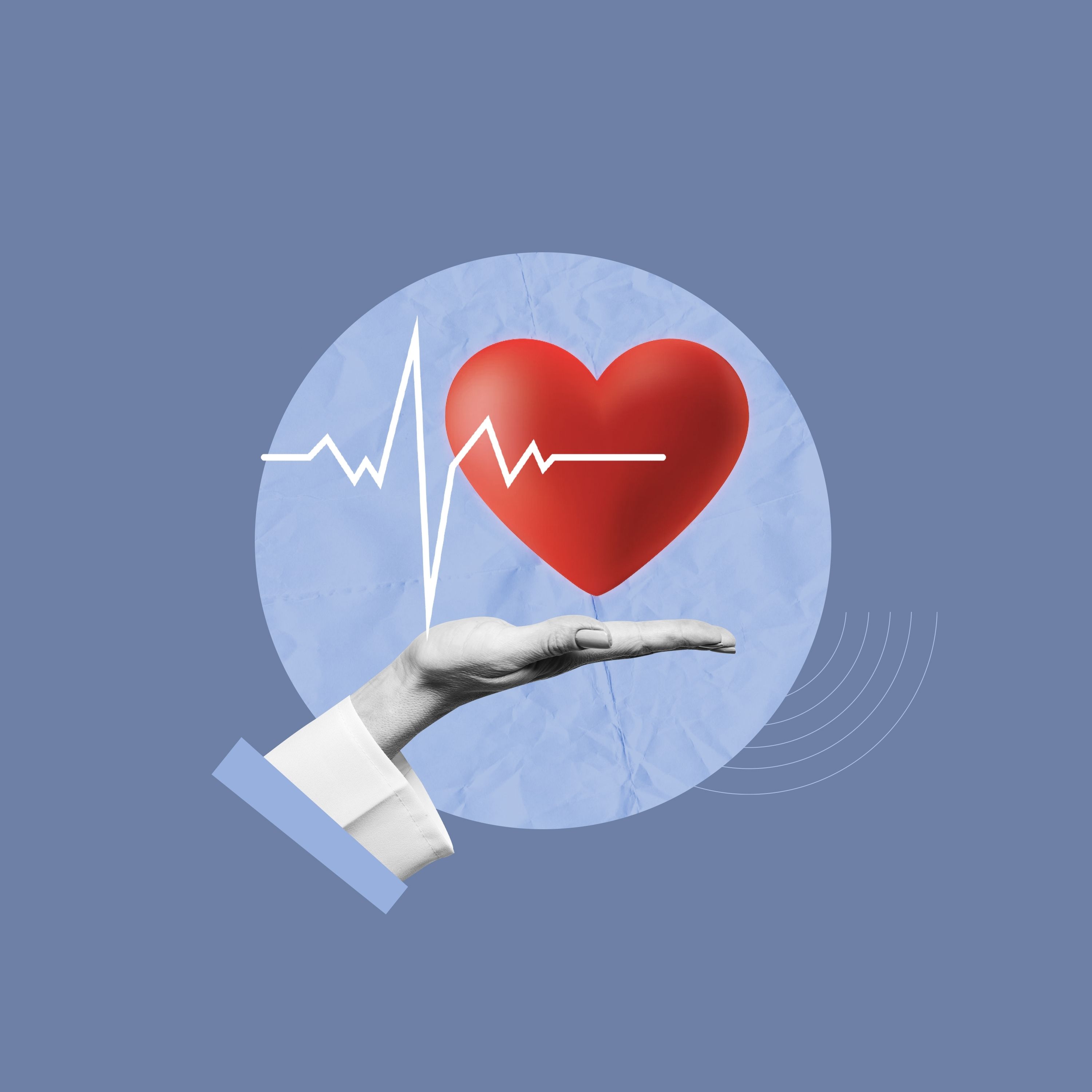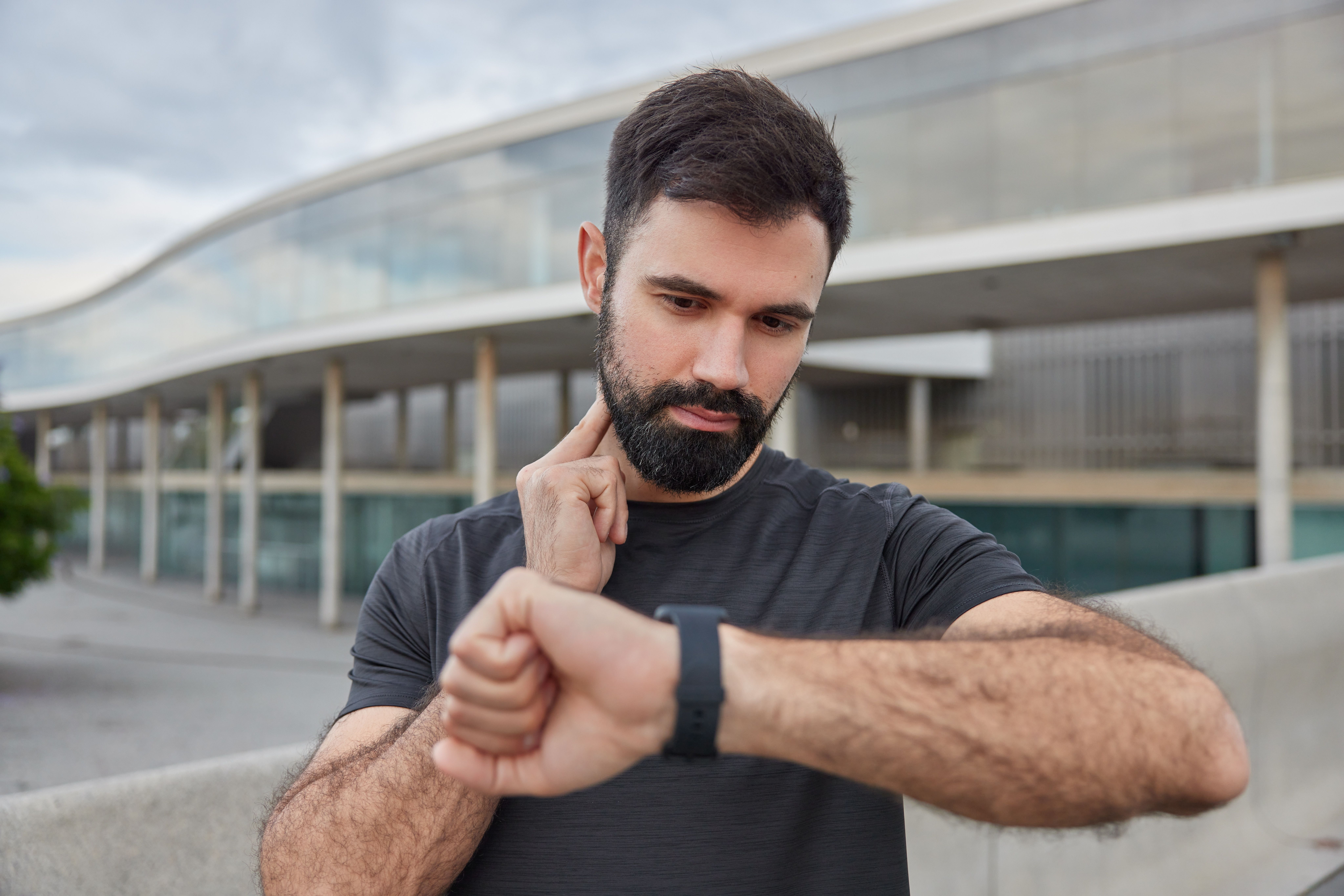Everything you need to know about a healthy resting heart rate

A healthy resting heart rate is between 60 and 100 beats per minute (bpm). Depending on your activity, it can be higher or lower. In some cases, over 100 bpm may be dangerous.
What is a healthy resting heart rate?1-3
Your heart rate is the number of times your heart beats in a minute. It can vary from person to person and can be influenced by a variety of factors such as your age, your activity level, and your emotional state.
Heart rate is measured when you are at rest and relaxed. This is called your resting heart rate. It is when your heart pumps the minimal amount of blood that your body needs because you are at rest. A normal, healthy resting heart rate for an adult is between 60 and 100 bpm. Some people may have a resting heart rate that is lower than 60 bpm and that is still considered normal. For example, athletes may find their heart rates are lower, sometimes as low as 40 bpm. Additionally, people taking certain medications, such as beta-blockers, may also have a lower resting heart rate.
Here are the average bpm heart rates depending on age:
- 18 to 20 years: 81.6 bpm
- 21 to 30 years: 80.2 bpm
- 31 to 40 years: 78.5 bpm
- 41 to 50 years: 75.3 bpm
- 51 to 60 years: 73.9 bpm
- 61 to 70 years: 73.0 bpm
- 71 to 80 years: 74.2 bpm
- Over 80 years: 78.1 bpm
The normal, healthy resting heart rate for children can be higher than that of adults, depending on their age.
What factors may affect my healthy resting heart rate?1,3
In addition to age, a few other factors can affect your healthy resting heart rate. These include the following:
- Temperature: your healthy resting heart rate may increase slightly when you are exposed to hot temperatures.
- Pain: this may increase your healthy resting heart rate due to a stress response.
- Medication: some medications, such as beta-blockers, can lower your healthy resting heart rate.
- Emotions: if you are anxious or excited, your heart rate may increase.
- Weight: people with obesity may have a higher healthy resting heart rate, as their heart must work harder to supply the body with blood.
- Anemia: low levels of red blood cells can cause the heart to beat faster to supply the body with oxygen-rich blood.
- Endocrine or hormonal abnormalities: these can influence your healthy resting heart rate. For example, too much thyroid hormone, also called hyperthyroidism, can increase heart rate whereas too little thyroid hormone, called hypothyroidism, can decrease heart rate.
- Postural tachycardia syndrome: this produces an abnormal increase in heart rate after sitting up or standing. In addition to heart palpitations, some typical symptoms of postural tachycardia syndrome include dizziness and fainting.
- Congenital heart disease.
- Heart disease that is affecting blood flow.
- Injury to the heart, such as from a heart attack.
- Ventricular or supraventricular arrhythmias.
- Body positioning: your healthy resting heart rate can increase temporarily when you move from a sitting to a standing position.
- Smoking: smokers tend to have a higher resting heart rate. Quitting smoking can help bring it back down.
- Illegal drugs, such as stimulants like cocaine, methamphetamines or over-the-counter decongestants, or misusing prescription medications or nonprescription products, such as diet supplements: this may also cause a rapid heart rate.
- Other less serious reasons for a rapid heart rate: these include drinking caffeine, drinking alcohol, stress, physical exercise, pregnancy, anxiety, poor physical conditioning, and fever.

How can I check if a have a healthy resting heart rate?2,3
You can check your heart rate by placing your fingers on your wrist or neck or using a heart rate monitor or smartwatch to measure the number of heartbeats you have in 1 minute. To start, sit down and do your best to feel calm for 5 to 10 minutes before taking measurements.

Is it dangerous to have a rapid heart rate?1-3
A rapid heart rate is called tachycardia. For adults, it is defined as a heart rate above 100 bpm. But what is considered too fast may also depend on your age and overall health.
There are several types of tachycardia. Their classification is based on their cause and the part of the heart they affect. These types include the following:
- Multifocal atrial
- Ventricular
- Sinus
Experiencing tachycardia may be temporary. But if you are experiencing an abnormal rapid heart rate along with any associated symptoms such as chest pain, shortness of breath, fainting, inability to exercise, or dizziness that cause you any level of concern, you should seek medical attention right away. It could be a sign of a serious heart complication. Doing so may allow health care professionals to catch early signs of a heart attack or diagnose other conditions such as heart disease before these take a significant toll.